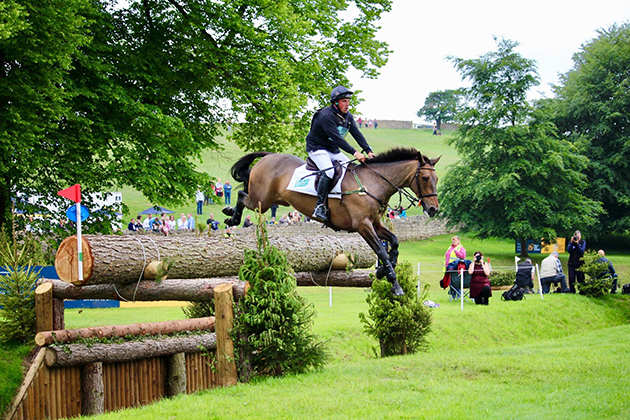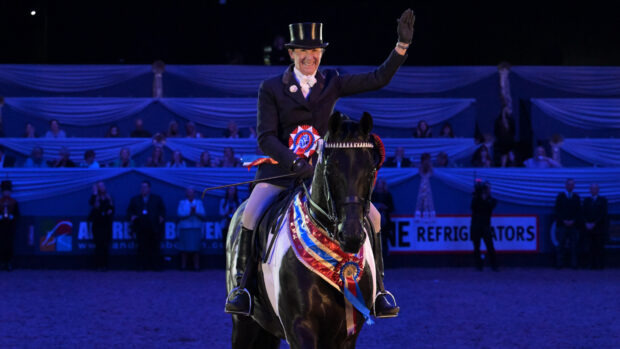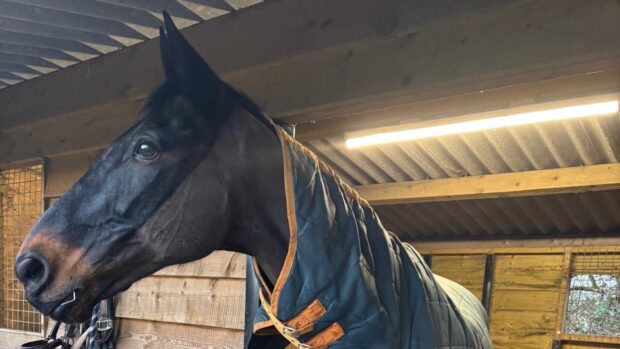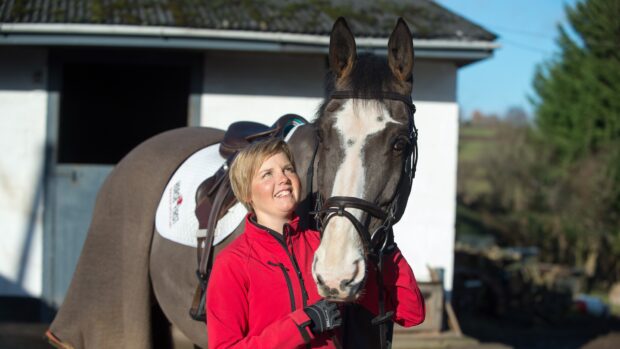I remain impartial on a lot of things nowadays in comparison to my controversial younger self. But I feel the need to discuss subjects that are becoming a growing concern in the eventing and general equestrian world.
I’ve seen a few people sell up recently and decide to get a job or change disciplines. I would imagine because renting or running a yard, paying all your bills, staff and funding a house is hard work, especially in the past couple of months with Christmas. I think gone are the days where you can just have owners’ horses to earn enough of a living — that’s now enough to cover just your bread and butter money. You need to have your fingers in other pies as another source of income to really make a business sustainable in horses.
When I was young, my parents and I did anything we could to generate more income, mainly because at the same time we were building the yard brick by brick and adding bits to it when we could. We ducked and dived to survive at times and it was very hard. I remember buying 2,000 blankets from Butlins when it had gone bust for just £2 a blanket. I re-sold them for £12 for a single and £20 for a double and even to this day all the clipped out horses still wear them when it’s cold. I generally did anything I could that would turn a pound because I had to.
We were also dealing in large quantities of horses and I had 60/70 horses in at any one time. I would never do that again given a choice — I’d always go for quality over quantity, but we had to to survive. It definitely devalued my riding though in the long-term as I was always the rider people thought of to send tricky horses to.
We’ve sold some good horses over the years too and dad also sold many Olympic horses. I had a great pony, Con, who I had as a three-year-old. He took me to the pony European championships and then we sold him — he went on to launch Tom McEwen’s career too.
I remember buying Park Trader as a five-year-old, doing a few events on him and selling him to the USA. He has gone on to complete many CCI5* (I can’t get my head around the new FEI levels) to date with Buck Davidson Jr. Even Burghley winner Lenamore passed through the yard when he was four, and these are just to name a few! But in those days it was a much easier task to sell horses — nowadays you’re always up against litigation and people who feel they need a top horse to ride. In reality, they need a £2,000 cob and £10,000 worth of lessons! But the thing that drives me insane is that there’s nothing wrong with the £2,000 cob — an amateur rider would have equally as much fun on it.
A few years ago, people would also use reputable dealers and agents that had been recommended to them by word of mouth. I guess social media changed all of that, as people would now much rather message than pick up the phone and really ask about the horse in question. But it pi**es me off when I see someone looking for a horse that moves like Valegro, jumps like Big Star and goes cross-country like Arctic Soul and stands like a rocking horse — what’s their budget? Under £5k.
And there’s nothing wrong with taking a chance on something or buying something cheap, but you should then be fully aware that at that budget what you’re going to get is not the finished article. Yes, the seller needs to be honest and tell you the ins and outs, but if you’re buying something with a vice or that’s green, you have to accept it.
There also used to be a real demand for good one- and two-star horses, but as the sport has become increasingly more expensive, the middle market has slowed down dramatically. I also think that the young riders want something that will go on to do four- and five-star now, instead of learning from a schoolmaster first. Schoolmasters are so underrated nowadays, which is a shame as I don’t know how people learn without them. It always used to give the old boys a job too at the lower levels, as even when retiring from top level they still deserve a purpose if they’re willing.
The market for top horses is still there, but I think if you’re spending serious money on a top one, people don’t necessarily look first in Britain. Like with showjumping and dressage, clients start in Europe because the more proven bloodlines are there. That’s why I think it was great to see what British breeders are trying to do — to breed the quality in the UK so the horses can go on to achieve, thus making British-bred horses more appealing in the long run.

Even in freezing temperatures of -7 the arena survived and the surface was perfectly rideable on!
I braved the British Breeders Awards dinner in London earlier in January, which we attended with our good friends and next village neighbours, Martin Schleicer and Niall Fergusson. They are lovely guys and have become great friends of ours.
It was a successful trip, although watching us navigate around London on the tube was a bit like letting the Yorkshire hillbillies out in force. Especially when we had a moment of brilliance thinking we were on the wrong tube, getting off and looking at the underground map, to then realise we were actually on the right one. We had to get on the next tube going in exactly the same direction as the one we got off, much to the amusement of people stood on the platform.
After a great lunch and much wine at the top of The Shard, Martin then had a great idea of us all walking from The Shard to the hotel. A moderate 20 minute walk away, because “we could use the exercise”. With the wife in heels and Niall with his inhaler, when we reached the hotel we looked like we had just tackled the London Marathon twice and needed a little lie down. It was a nice meal and fun evening, but to be honest, most of the business was done in the bar afterwards! We met some great people throughout the night and they were as breeding mad as Martin and Victoria. Dry January had also gone out of the window by this point. The only thing dry about it was the dry gin and dry white wine.
It’s been great having George back from uni this past month. He’s a good lad and helps me with exercising the horses whenever he’s back. Sometimes it’s good for the young horses when I put him on them to let him trot or canter around a sequence of fences so they learn to find their own balance and rhythm without being helped by me the whole time. If you put them on the spot and always help set things up for the more inexperienced horses, they can end up relying on it. Therefore when you make a mistake or end up in the sh*t and need them to find a fifth leg, they look to you because they’ve never had to think for themselves.
There’ll be many amateur riders out there who’ll beat themselves up about missing or not being able to see a stride and making mistakes. It’s good for horses when they’re learning to deal with mistakes over small fences and pole exercises — they learn to think for themselves. As a rider all you should try and do is maintain a good rhythm. If you can keep your horse in a good canter and a good balance, the fence will come to you. A great exercise which I’ve included in the video clip above is to simply jump around a sequence of small fences, in this case cross-country fences, while keeping in a rolling canter on a loose rein. Just keep riding around until the rhythm stays the same and the horse pops over the fence like it’s an added canter stride.
Article continues below…
You might also be interested in:

Matthew Wright’s eventing blog: why New Year’s resolutions aren’t for me

Subscribe to Horse & Hound magazine today – and enjoy unlimited website access all year round
I would just like to thank the team at home who are doing a great job at the minute of keeping everything going, even though last week we had temperatures as low as -7. It’s very much appreciated.
I think one of the funniest comments I’ve heard all month was when I asked a member of staff to go and break the ice on the water troughs in the field. It had been below freezing again that night.
“It’s ok,” they replied. “No need to, I did them yesterday”.
In that moment I did my best Gordon Ramsay crossed with Alan Sugar impression! Needless to say he doesn’t work here any more…!
Please also remember on Thursday 7 February it is The Time To Talk Campaign run by Mind. Be sure to check out my Facebook page where I will be talking about mental health issues and will invite people to ask me any questions.
Matt
For all the latest news analysis, competition reports, interviews, features and much more, don’t miss Horse & Hound magazine, on sale every Thursday.




